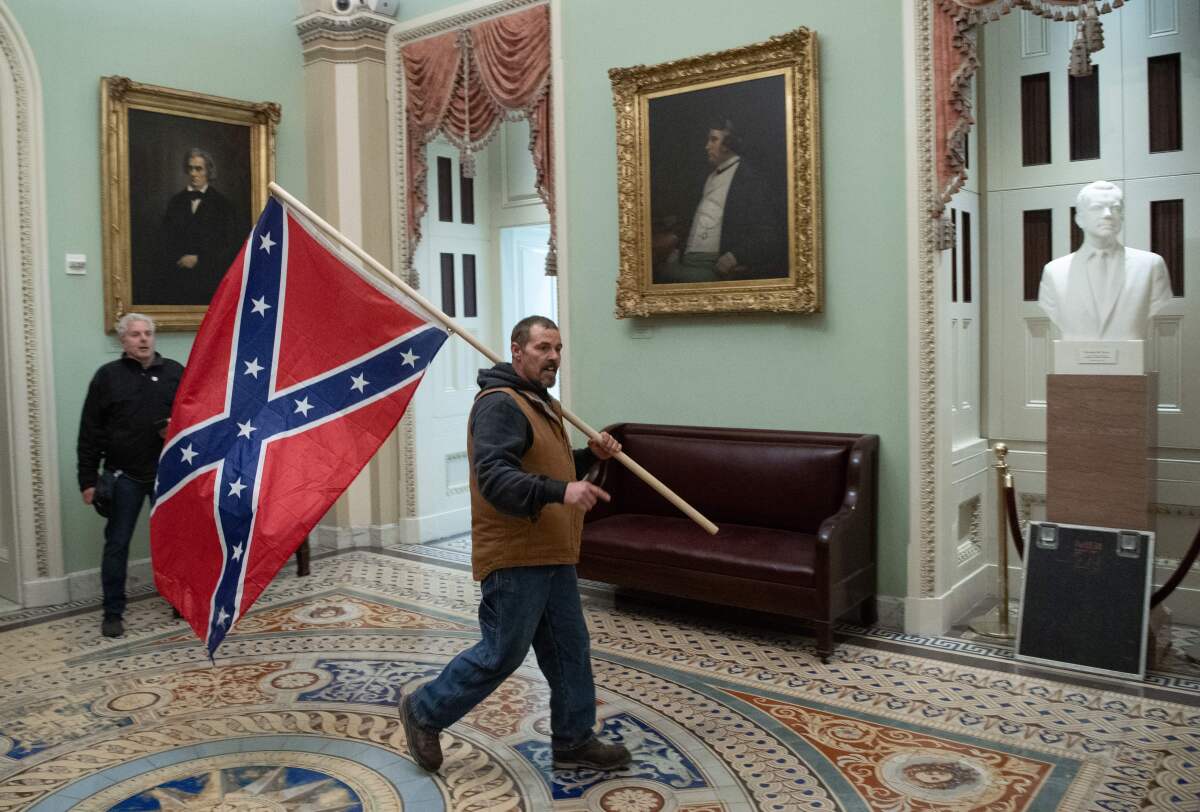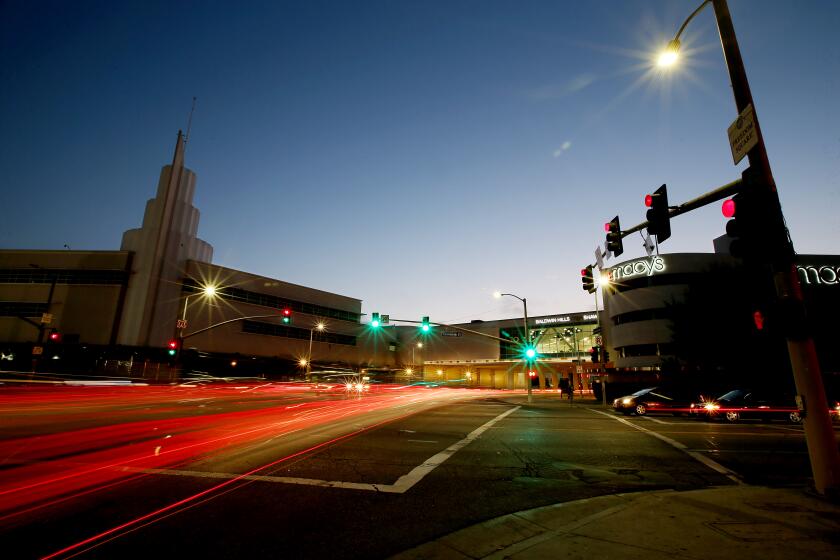Op-Ed: This year, Black History Month has been overtaken by white history made on Jan. 6

Black History Month, essential as it is, is too often a respite from white history, a way for Americans of all colors to embrace the heroics of Harriet Tubman, W.E.B. DuBois and so many others without examining the villainy of a country that made their heroics necessary. I understand the choice to hold Black stories apart from the larger American narrative, to give them the space they deserve, at least once a year. But elevating Black history in February has ironically also been a way to elevate racial denial.
In 2021, we don’t have the dubious luxury of such compartmentalization. This year, after a decade or so of overt racism moving steadily from the margins of American political life to dead center, Black and white histories have converged. It is not a pretty coming together; it is a collision that has shifted the ground under everyone’s feet.
The second acquittal of former President Trump, in his second impeachment trial, made the collision official. Excusing Trump for inciting an insurrection — for the malign forces in American society he provoked and unleashed — is a tragedy for Black and white America, and one bigger than many singular tragedies that have come before, including the Tulsa riots, Emmett Till, even George Floyd.
The vile, brazenly immoral energy that animated Jan. 6 — white supremacy above all — was sanctioned by nearly 45% of Congress, not to mention more than 74 million Trump voters too. Yes, seven GOP senators made history when they joined the Democrats in voting to convict Trump, but that only illuminates the bad trouble represented by 45% and 74 million.
In a way that I thought couldn’t happen in the 21st century, the Capitol mob asserted its right to do whatever the hell it wanted to reclaim a lost American Eden, a so-called Eden, a white Eden, where truth and democracy belong to one group only and Black lives (and those of other “others”) certainly don’t matter. For me, the enormity of it is fantastic, unbelievable, like a plot out of a negligible dystopian graphic novel.
Fantastic and unbelievable, that is, until I remember certain parallels; for example, what happened after the Supreme Court’s Brown vs. Board of Education decision. In 1954, in the Brown case, the court outlawed racially segregated public schools and invalidated the notion of separate but equal. In response, rather than allow Black students in the classroom door, many white communities closed their schools down — they burned the village in order to save it. In much the same way, the Capitol was stormed and democracy desecrated in order to save it, even if salvation meant white insurrectionists injuring other white folks and killing police.
Every year during Black History Month, the heroes of Brown vs. Board of Education — most prominently, Thurgood Marshall, who argued the case in the Supreme Court — are go-to figures for celebration. But we don’t talk much about the white history of fierce resistance, the actions that undercut desegregation over decades and reduced so many public schools to spaces for the unwanted and dispossessed. It’s a legacy we’ve lived with for so long, we’ve lost sight of it as a crisis.
People, streets, a fire station and even a mountain have names that sketch the hardships, triumphs and hard-won progress that are part of Black history in Southern California.
But we can’t escape the sights and sounds of our 2021 racial crisis. No one watching the Senate trial could forget the damning videos and eyewitness tweets, audio and body cam footage — the Confederate flag in the Capitol halls, the Black police officer surrounded and repeatedly assaulted by the N-word, the racist pedigree of Proud Boys and Oath Keepers — that more than confirm the noxious energy that fueled an attempt to overthrow a free and fair election (in which Black voters played a critical role).
And yet the Republican Party, like white supremacists in eras past, insists on maintaining American innocence by maintaining that what we saw was a crisis of individuals, not the collective. They suggest that the former president and the MAGA mob were singular bad actors in an otherwise virtuous American story.
The reluctance, the flat-out refusal to censure the deep racial animus that drove the Capitol attackers, only fans the flames. White history — not just certain white people — has once again taken American history on a troubling turn.
We don’t have time for this nonsense. Americans cannot embrace more opportunities to oppress Black people, not least because it makes it too easy to oppress so many others — women, immigrants, the entire planet. The country, not to mention the Earth itself, has no more time for separate histories, for perpetuating white resistance to change and justice. There is no more time for papering over the bad trouble we’ve allowed to flourish, again and again, or for denying our intertwined stories.
This February, as we honor those who sought to shift history’s course, the convergence of Black and white histories offers no respite at all, no reassurance, and that’s the point. The failure to convict Trump is patently illogical, entitled and devastating. The stark evidence of our racial failings should clarify as never before the meaning of Black history — the strain toward progress, the white forces straining to hold progress back.
Martin Luther King Jr. said it best: We have to see our story whole or we will all perish.
Erin Aubry Kaplan is a contributing writer to Opinion.
More to Read
A cure for the common opinion
Get thought-provoking perspectives with our weekly newsletter.
You may occasionally receive promotional content from the Los Angeles Times.











